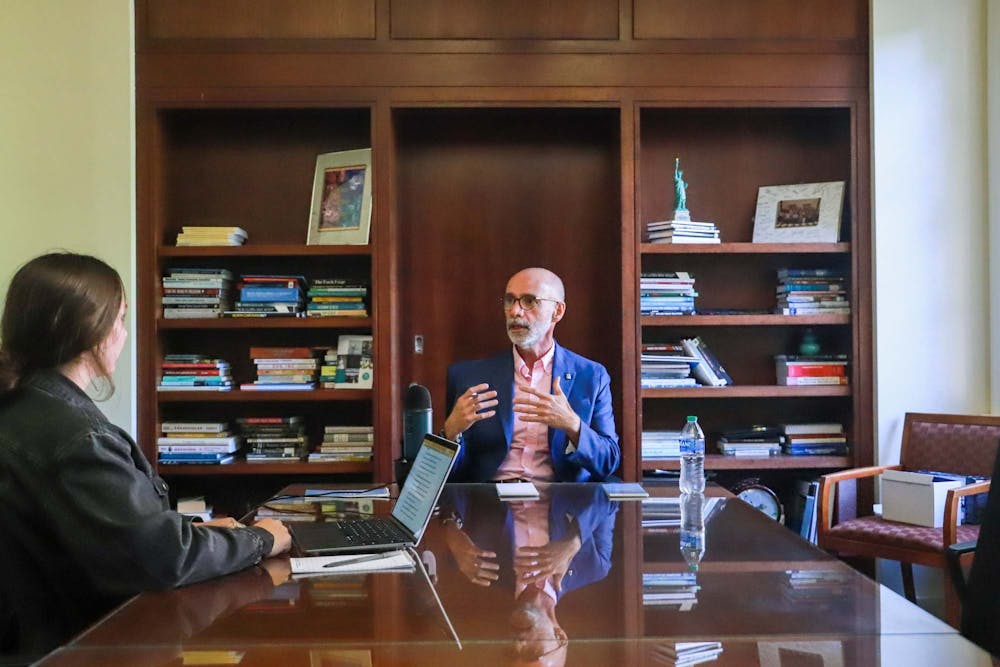As the first month of the Fall 2022 semester comes to an end, DTH University Desk Editor Liv Reilly sat down with Dean Raul Reis to discuss the upcoming year, along with the past and present of the UNC Hussman School of Journalism and Media.
This interview has been edited for brevity and clarity.
The Daily Tar Heel: What are you looking forward to most as a new dean of the Journalism School?
Raul Reis: I don't have huge expectations about anything, but I have very high expectations for myself in terms of coming to the job. This is an amazing school, which has a legacy and has a history. And I really want to live up to the expectations because I know there are a lot of high expectations. So I look forward to serving the students, the school, the faculty, the staff, in a way that lives up to people's expectations and my own expectations.
DTH: The journalism school at UNC is predominantly made up of white students and faculty. Do you have a plan to extend diversity and how to inform these incoming classes of students that the journalism school is a safe place for them?
RR: That's one of the goals of the plan is to have more representation in the school from across a variety including socioeconomic, LGBT+, racial, ethnic, social backgrounds and first generation immigrant communities and international.
So a multitude and variety of points of view (should) be more represented within the school from the perspective of the students, but also related to faculty and the same thing, making an effort. So in the past month and a half, I've had the opportunity of meeting with search committees, ongoing searches to talk about diversity, bringing my experience from previous institutions and what I learned to make searches more diverse in terms of the applicants.
Where we should be looking, how we should be going about publicizing our positions and making sure that people will come into a safe space, and then prepare ourselves to receive people who are different from us — and then make sure that they are happy here.
DTH: Can you give us the Dean Reis vision? What are you looking forward to and what are you planning to do these upcoming years for the school?



